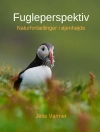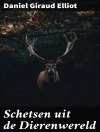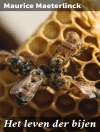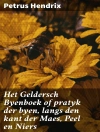In ‘Wild Animals I Have Known, ‘ Ernest Thompson Seton presents a fascinating amalgamation of natural history, personal narrative, and anthropomorphism, inviting readers into the intricate lives of various wild animals he observed. With a richly descriptive prose style that vividly captures the essence of the wilderness, Seton blends scientific observations with emotional storytelling, lending a voice to creatures such as Lobo the Wolf and Wully the Moose. The book is nestled within the broader context of early 20th-century American literature, reflecting a growing interest in nature and wildlife preservation amid an industrializing society. Seton, a pioneering naturalist and one of the founders of the Boy Scouts of America, drew from his extensive encounters with wildlife, infusing each tale with his unique perspective on the natural world. His passion for animals and dedication to environmental conservation stemmed from a deep-seated reverence for nature, influenced by both his upbringing in Canada and his artistic pursuits. This blend of experience and creativity shaped his storytelling approach, allowing for profound reflections on the human-animal connection. This enchanting collection is highly recommended for readers who wish to explore the delicate balance of nature through engaging narratives. Seton’s skillful interweaving of factual detail with compelling storytelling makes ‘Wild Animals I Have Known’ not only an important ecological text but also a timeless literary work that continues to resonate with audiences today.
关于作者
Ernest Thompson Seton (1860–1946) was a pivotal figure in the development of American literature and the field of wildlife conservation. Born in South Shields, England, but raised in North America, Seton’s work was heavily influenced by his extensive experience with the natural world from a young age. He became a renowned author, artist, and naturalist, best known for his realistic and empathetic portrayal of animals. ‘Wild Animals I Have Known’ (1898), one of his most celebrated works, comprises a series of engrossing tales that explore the lives of individual animals, blending scientific observation with engaging storytelling. This book, along with other notable works such as ‘Lives of the Hunted’ (1901) and ‘Two Little Savages’ (1903), helped establish Seton as a prominent figure in the nature study movement and as one of the founders of the Boy Scouts of America. His literary style is characterized by a combination of evocative illustrations, detailed descriptions, and a narrative that imbued animals with individual personalities without straying from the scientific truths of their behaviors. Seton’s contribution to literature and environmental education has left an enduring legacy, one that continues to inspire reverence for wildlife and the outdoors.












